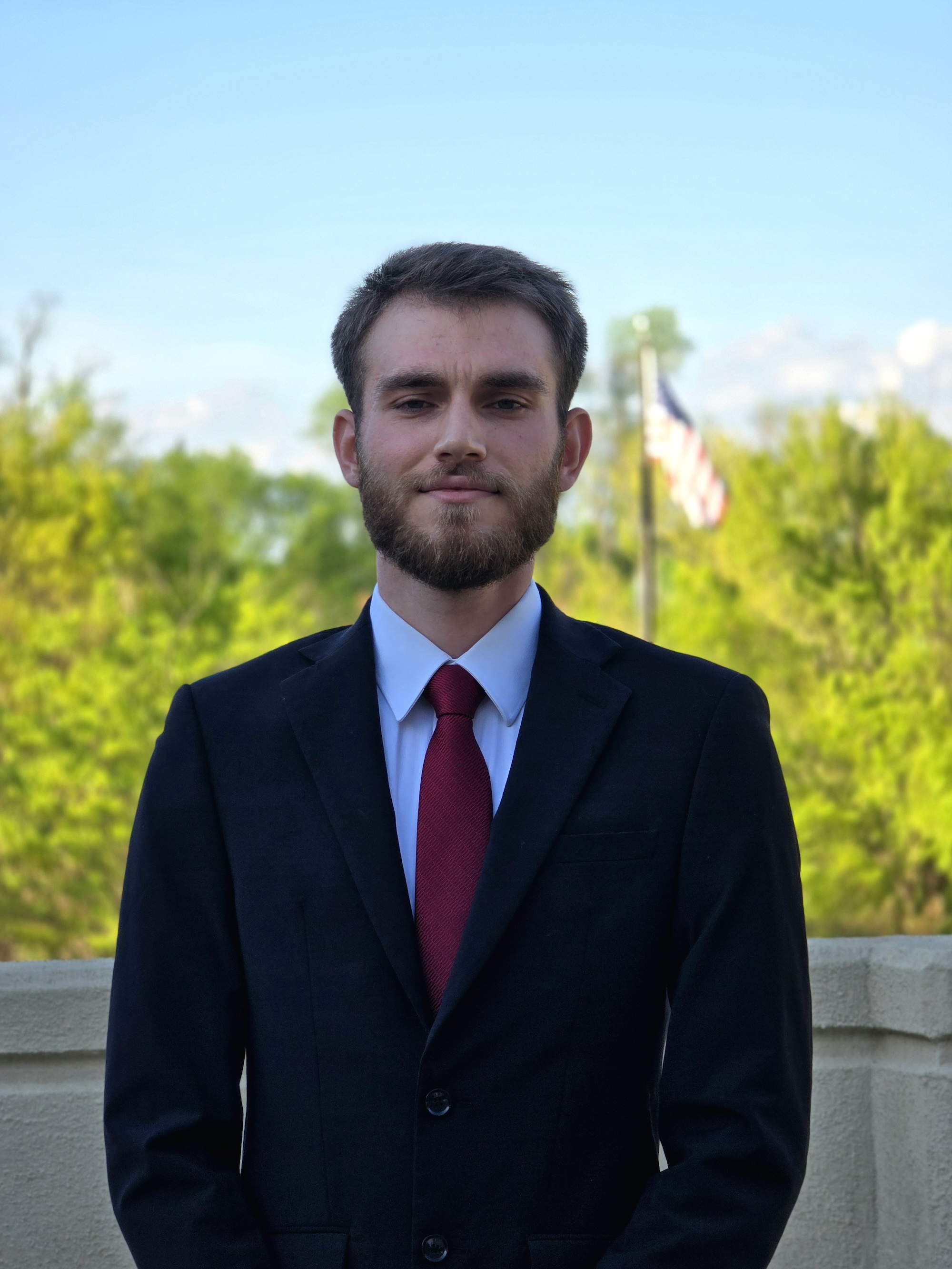Tariq Aldalou, along with his mother and sister, fled Syria’s civil war for safety in Lebanon in 2018. As refugees, they were hoping for visas to the United States, where they would meet up with Tariq’s father. While they were told it would take two months for their paperwork to be approved, Tariq and his family spent three long years waiting. “Honestly, it felt really hopeless,” said Tariq about that time in his life.

Tariq explained that getting the documentation required to leave Lebanon was challenging. In fact, it felt impossible. When they fled Syria, Tariq left important documents behind. If Tariq’s visa had been denied, he wouldn’t have been allowed to return to Syria; instead, he would have had to go to Jordan, where he knew no one. “It was a pretty tough situation until I got the visa,” he said.
In 2021, Tariq finally arrived in the U.S. and went on to graduate from Mountain View High School in Centreville. However, before he could start college, he had to take some extra classes since most of his education was from outside the U.S. To speed up the process, Tariq enrolled in dual enrollment courses at NOVA.
Tell us a little about yourself and your background.
I was born in Syria, hold a Jordanian passport, and recently lived in Lebanon. But I couldn’t work or go to school in Lebanon since I wasn’t Lebanese. It felt like I could do nothing, and I couldn’t leave the country.
Then one day, I came across LOYAC, a nonprofit organization that helps refugees. I volunteered with the group so I could be part of something meaningful. It turned out to be one of the most fulfilling experiences of my life, and I’m really proud of it.
I realized that LOYAC’s model of relying solely on donations to feed refugees was unsustainable, so I proposed something different. We began accepting donations and implementing programs to teach Arabic, English, and math. We also organized events where women in the refugee camp could come together to sew dresses; these were sold in other countries, with profits earned going back to the women and their families. The initiative was highly successful and eventually extended beyond Syrian refugees to Palestinian and Lebanese citizens.
Tell us how you feel about being a semifinalist for the Jack Kent Cooke Foundation Scholarship.
Being a semifinalist for the Jack Kent Cooke Foundation Scholarship fills me with emotions: happiness, excitement, and nervousness. I’m genuinely grateful for reaching this stage of the selection process. I’m optimistic; if I become a finalist, this prestigious scholarship would be a chance to transform my academic and personal journey.
What brought you to NOVA?
I’d planned on going to George Mason University straight out of high school. But faced with paying out-of-state tuition for Mason, I decided to enroll at NOVA. Being new to the country, I quickly realized I needed some guidance — and I found that here. I’m really happy I came to NOVA.
What are you studying at NOVA?
I’m getting an Associate of Science in engineering and another in math. At Mason, I plan to get my bachelor’s degree in computer engineering. I really value the education system here in the U.S., and I’m doing my best to take full advantage of it.
Tell us about your experience at NOVA (i.e., professors you’ve liked and friends you’ve met).
Thanks to Professor Francesca Viale, my time at NOVA has been incredible. With her guidance, I’ve excelled in physics and formed valuable friendships. She’s been a constant source of support, encouraging my academic and personal growth. It was Professor Viale who suggested I apply for the Jack Kent Cooke Foundation Scholarship, but she didn’t stop there; she also introduced me to exciting opportunities like the NOVA Fab Lab, SkillsUSA, and various engineering design challenges.
Since then, I’ve been deeply involved in SkillsUSA competitions, focusing on additive manufacturing as well as 3D design and printing. Our NOVA team recently won gold at a state-level competition, securing our place in a national competition in June. I’m thrilled!
What would you tell a student coming to NOVA?
I realized I missed out on many opportunities in my first semester by heading straight home after classes. I encourage new students to stick around and explore all the exciting things NOVA has to offer. You never know — you might discover something that completely transforms your college experience!
Where do you see yourself after NOVA, or what career pursuits are you exploring?
When I came to the U.S., I wanted to be a pilot, but that would mean being away from my family. I’ve chosen to stay close to support them. I originally considered Virginia Tech for engineering, but I decided on Mason so I can be here for my family.
Mason’s engineering program offers quantum computing, which I’m very interested in. Being this close to D.C., with so many resources and big companies like Google and Microsoft, is also a huge plus.